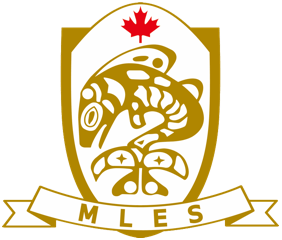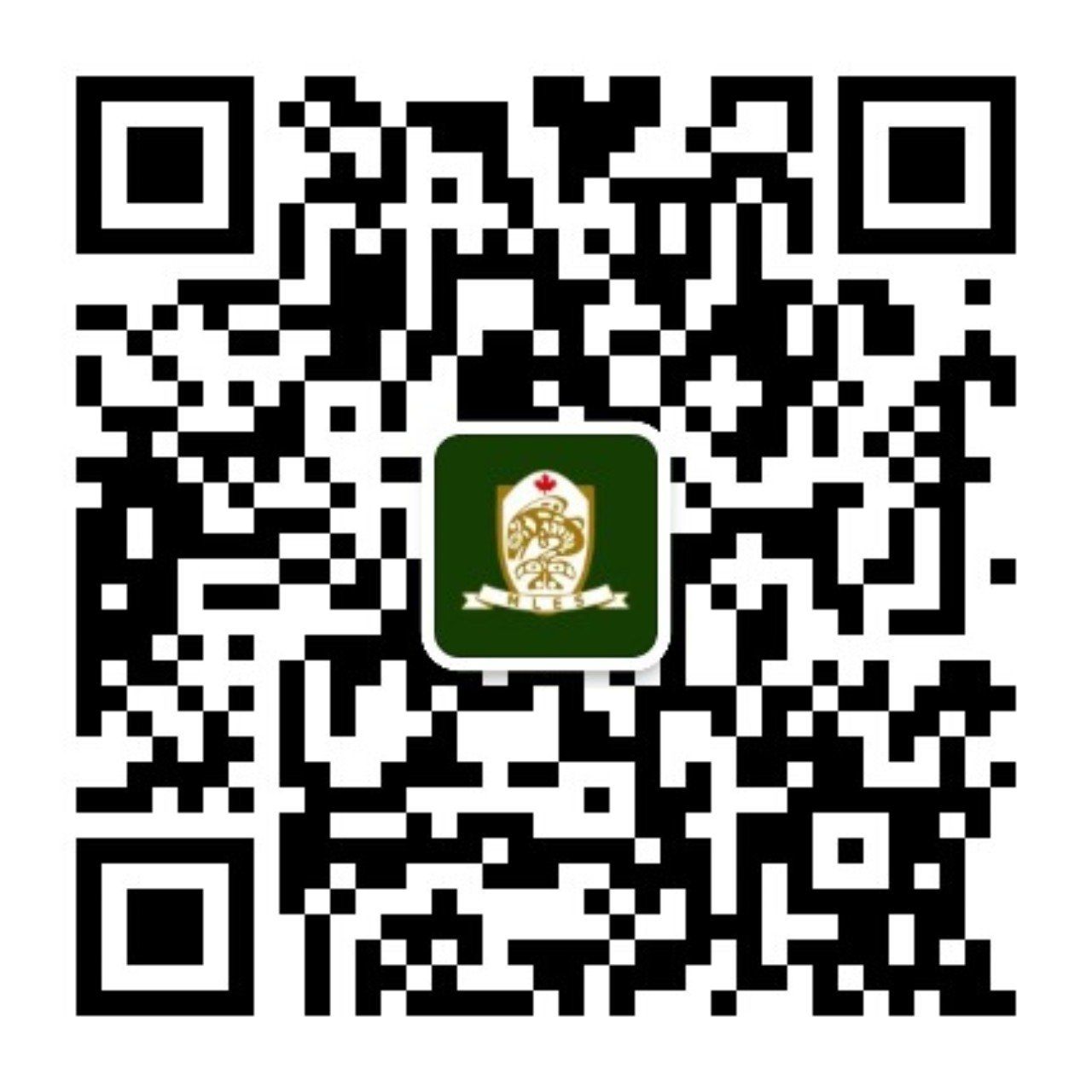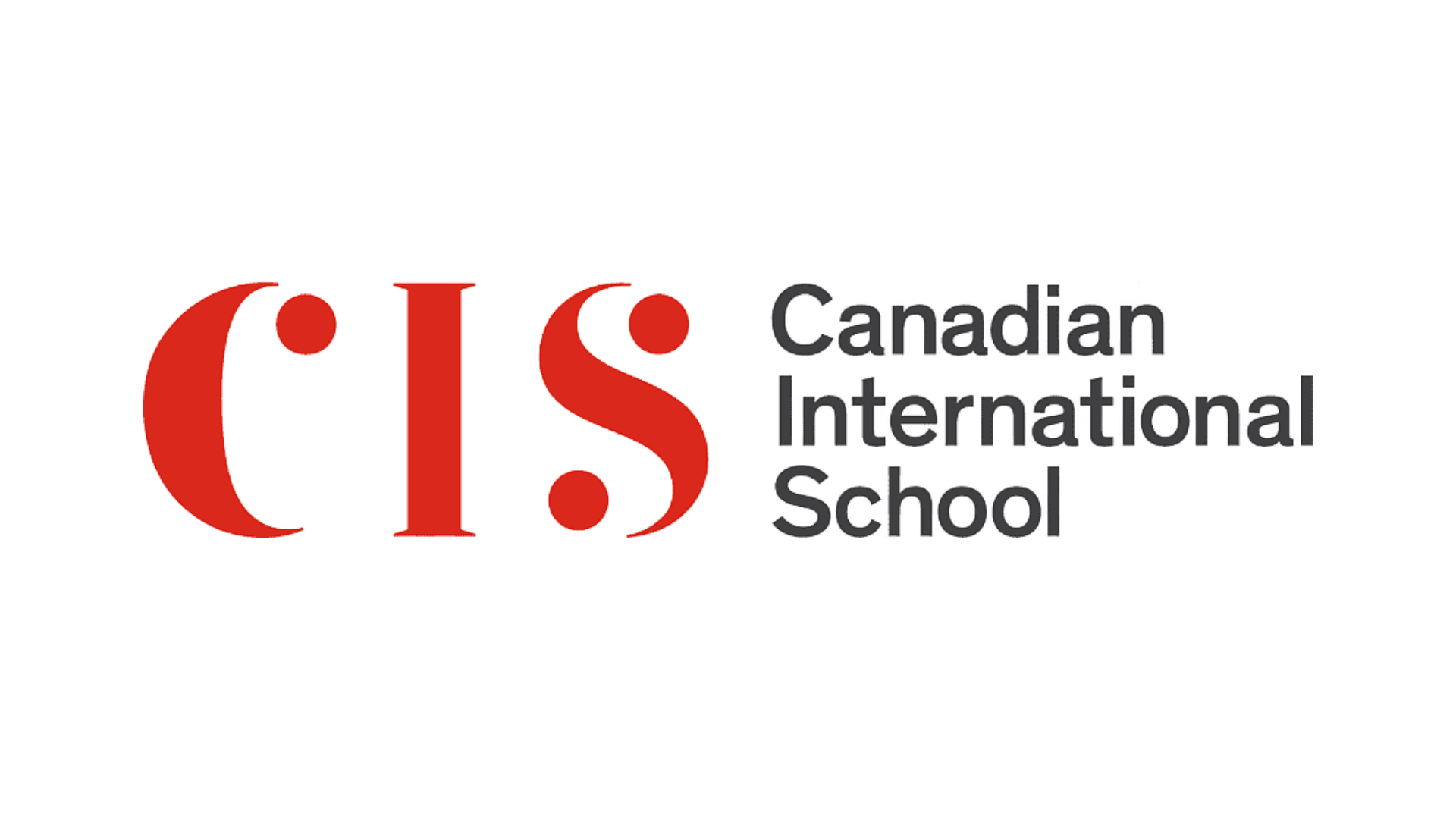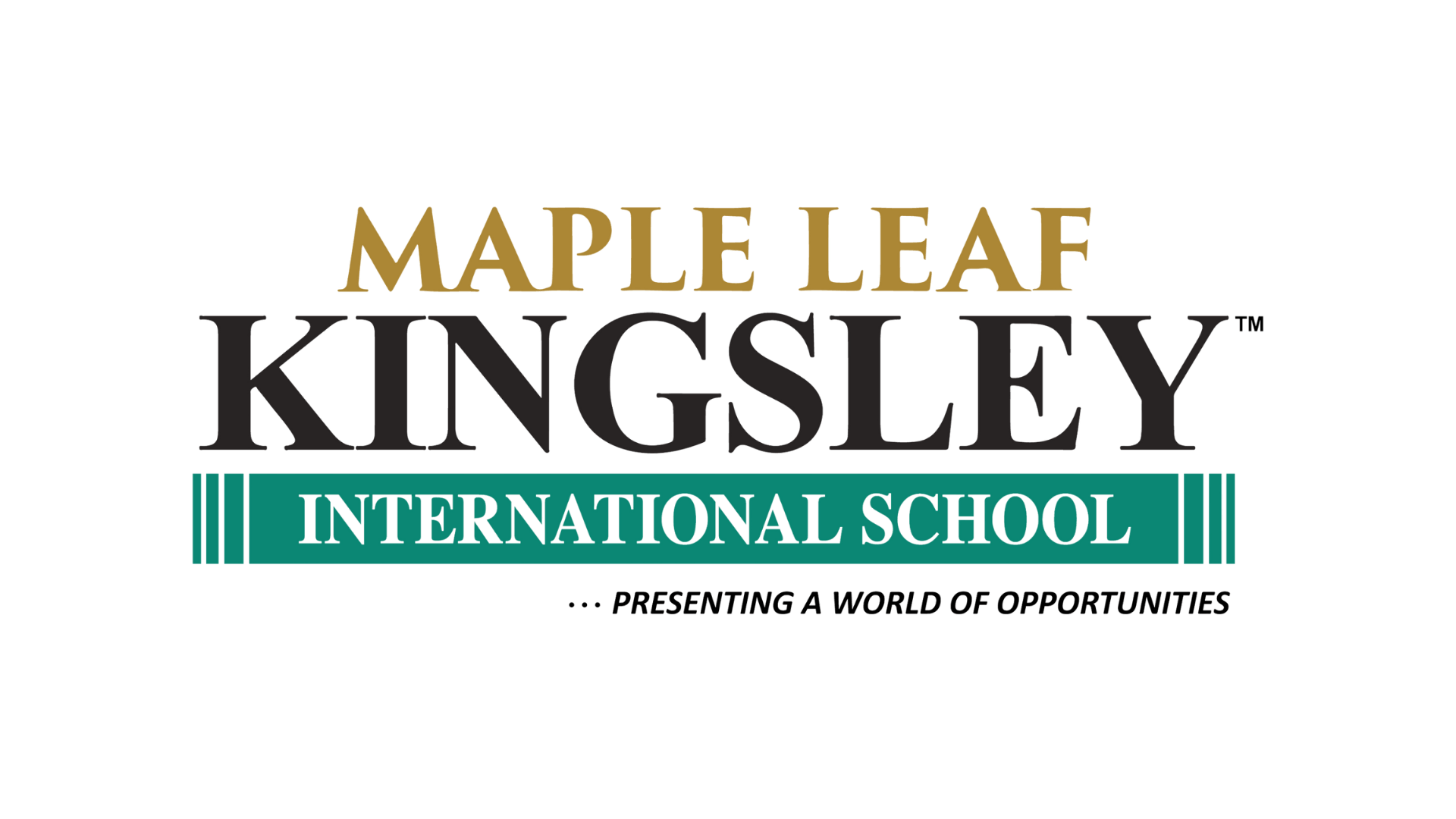Maple Leaf World School Program
Graduation & Benefits
MLES CHINA
Graduation
Graduation Requirements
MLWSP requires that students earn a minimum of 26 required credits to reach the graduation requirements, including 25 credits in academic courses and 1 credit in Moral Education. Each credit represents at least 100 hours of instruction.
19 credits are required in English language courses. In addition to fundamental subjects like Maths, Physics, and Chemistry, courses like Academic English, World Studies, Leadership, Creative Thinking are required and various AP courses are offered. 6 credits are required in Chinese Academic Courses, including Chinese language, Chinese Social Studies, and Chinese Humanities. For international students, 6 credits are required for Chinese Language and Culture courses.
Credits for Academic Courses
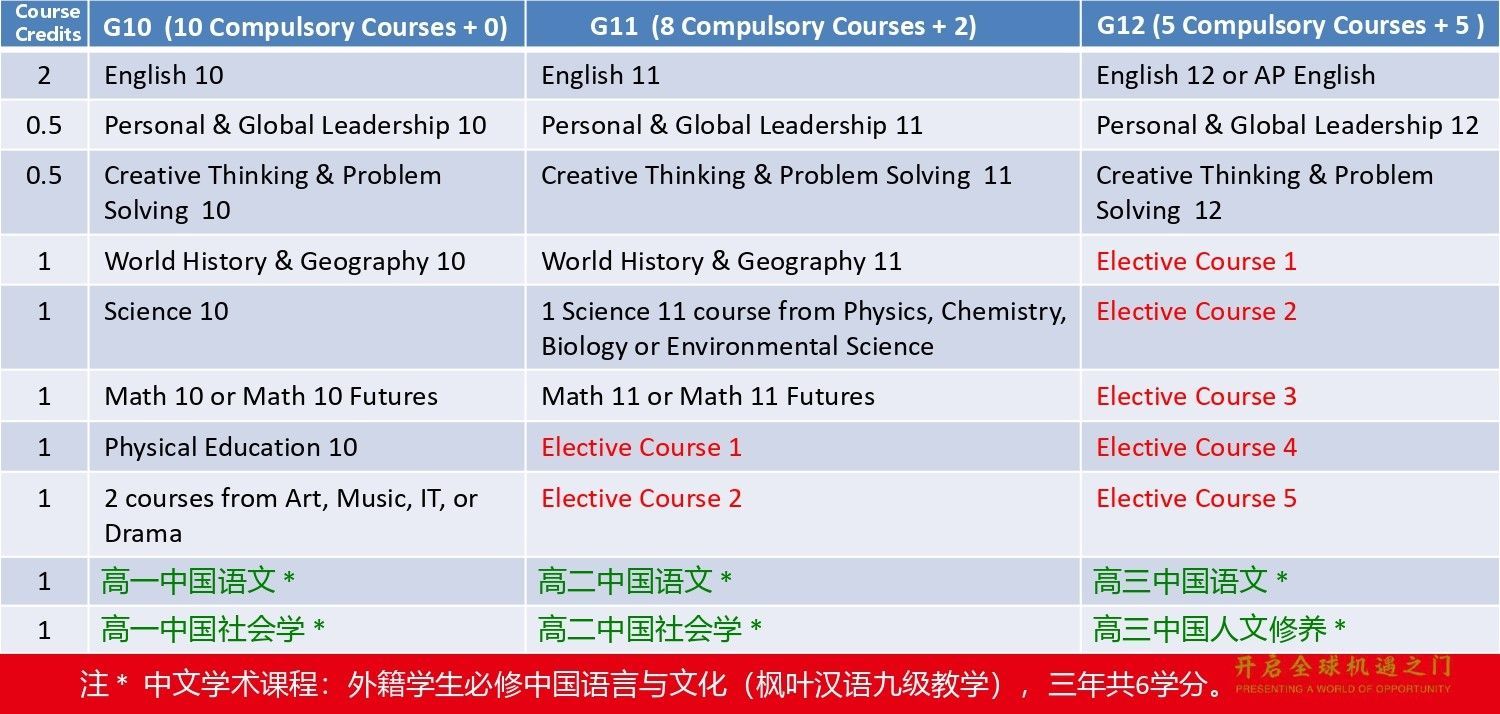
Benefits
A Maple Leaf Graduate Will:
- Communicate with English proficiency
- Exhibit qualities of a global citizen
- Show understanding of International issues and intercultural perspectives
- Perform at a high academic level
- Demonstrate high ethical standards and leadership qualities
- Apply higher-level thinking skills
In order to prepare students for success in Western Universities, MLWS Curriculum has been uniquely developed with the following customized features:
- Consistently implements proven teaching and learning strategies for enhancing English proficiency for high school learners – research based
- Provides consistent skill and knowledge building through the curriculum subject areas
- Approaches content from a global/international perspective
The Maple Leaf World Schools Curriculum incorporates the following:
- High academic standards in preparation for university studies
- Engaging and relevant content
- Consistent and effective teaching and learning strategies for enhancing English proficiency across all subject areas.
- Higher-level thinking assignments and problem-solving challenges
- Vocabulary Building
- International, intercultural and environmental perspectives
- Personal leadership and global citizenship development
- Opportunities for personalized learning
- Integration of technology
- Preparation for university through the development of application portfolios
MLWSP develops learners’ skills and attitudes to enable them to analyze, transform, and lead with Key Competencies that are embedded throughout the curriculum and featured in Personal and Global Leadership and Creative Thinking and Problem-Solving courses.
Higher-Level Thinking
- Problem Solving: Problem solvers identify and think critically about a problem, concern, or particular circumstance and seek to consider various perspectives and possible solutions.
- Creative Thinking: Creative thinkers are curious. They think outside the box about various ideas, subjects, the world and those around them. They ask questions, are open to learning new perspectives, and are risk takers who seek and use original ideas and thinking in a variety of situations.
- Reflective Thinking: Reflective thinkers set goals based on their strengths, weaknesses, likes and dislikes. They assess their learning progress and seek to further understand, plan and put into action how to achieve their goals. Reflective thinkers consider the reasons for their successes and struggles and aim to grow based on their reflections.
Communication
- English Proficiency: People who are proficient in English communicate for understanding. Communicating effectively also means continuously developing in all areas of English language learning (Speaking, Reading, Writing, Listening).
- Information Literacy: People who demonstrate information literacy skills understand and evaluate a range of relevant English resources and seek to use these resources in a variety of appropriate ways.
- Public Speaking & Presentation Skills: Having strong public speaking and presentation skills means being able to speak clearly and confidently, using a suitable tone, speed, and volume. Strong public speakers and presenters make connections as they discuss and share ideas and information, using language appropriate for their audience.
Global Citizenship
- Personal Responsibility & Integrity: Personal Responsibility and Integrity means always being honest and accepting responsibility for our actions.
- Collaboration: Collaboration means being able to work with a group of people towards a common goal, sharing to build on each other’s ideas, and achieving a shared understanding.
- Leadership: Demonstrating Leadership skills means taking the initiative to support others to reach a common goal while leading by example. Leadership means listening to other perspectives and working to ensure that everyone feels supported.
- International & Intercultural Perspectives: International and Intercultural Perspectives means accepting those who look, think, or act differently with the goal of developing a sense of empathy for their experiences and their points of view. This will develop a global view of the world and help us assess problems and situations from a variety of perspectives.
- Respect for the Environment: Respect for the environment means making sustainable choices that will benefit ourselves, our communities, our future generations, and the planet.

